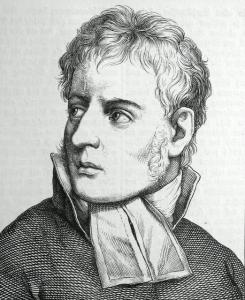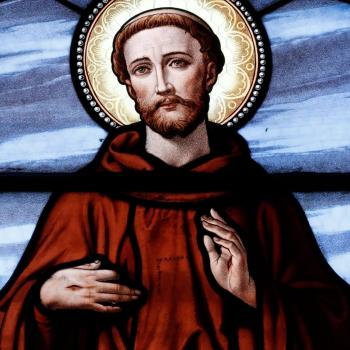This is the first of a four part series in which I will explore theologians of the previous two centuries who contributed to the theology which today influences progressive Christianity. Understanding these historical predecessors allows contemporary theologians to differentiate between what may be societal values and a Christian critical viewpoint based on theological method.
The Founder of Modern Liberal Theology: Friedrich Schleiermacher
Friedrich Daniel Ernst Schleiermacher (1768-1834) wrote at the beginning of what is widely considered to be the Modern Era. By 1800, the Enlightenment, the Renaissance and the Protestant Reformation had become the building blocks of everything from social theory to economics to philosophy and theology. Schleiermacher served as a Lutheran pastor, hospital chaplain, and university professor, and early in life contributed several pieces to the German Romanticist journal Athenaeum. He also contributed significantly to a new German translation of Plato’s Dialogues which were published over the course of many years between 1802 and 1828.
The year 1799 was a busy one for Schleiermacher as he labored over a widely read series of letters on the subject of the Jewish situation in Prussia. He then published arguably his greatest work, On Religion: Speeches to its Cultured Despisers and completed a critical review of Kant’s Anthropology. Here we will draw primarily from On Religion to discover Schleiermacher’s lasting contributions.
But first, why begin with F.D.E. Schleiermacher? After all, one may draw the continuum of “progressive” thought further back in history to Rousseau, Spinoza, Descartes, and others. For theologians, however, it was Schleiermacher who, writing at the dawn of the modern era, developed theological considerations which continue to hold weight today. Stanley Grenz and Roger Olson say of Schleiermacher,
The influence of this nineteenth century German on contemporary theology can hardly be overestimated…[Schleiermacher is] the one thinker subsequent theologians cannot ignore.
Grenz and Olson, 20th Century Theology: God and the World in a Transitional Age (39)
The Problem of a Transcendent God
Schleiermacher was concerned that the transcendent God, who had been the focal point of theology, generally speaking, up to his time, seemed unattainable and unrelatable to modern man. He identified with the German Romanticism of his age, which was itself a reaction to the cold rationalism of the great enlightenment thinkers: Descartes, Spinoza, and Leibniz. For the Romantics, experience and emotion were more valuable than rationality. Out of this consideration, Schleiermacher builds his theological concept of Gefühl. This term can be difficult to translate, and some writers render it merely as spiritual insight or feeling, (see Charles Taylor, A Secular Age, 489), which seems to not do justice to Schleiermacher’s concept.
Kirk Macgregor describes Gefühl as an
Innate and distinctively human faculty of deep inner experiential awareness, [which is] each person’s religious a priori.
Macgregor, Contemporary Theology: An Introduction (24)
This human desire desire for the spiritual, for that which exists above and beyond our own observation, is for Schleiermacher the starting point to approaching theology. In On Religion he asks:
What does faith know about except the relation of man to God and to the world—God’s purpose in making him, and the world’s power to help or hinder him?
This rhetorical question indicates his desire to distinguish for his readers between objective science and the need for human beings to believe in something beyond themselves. He also draws a distinction between belief and morality, although the latter is certainly informed by the former. He states for his readers, the “Cultured Despisers,” that religion “resigns, at once, all claims on anything that belongs either to science or morality.” Thus, belief in God is an inherent human desire, yet this belief does not, by necessity, influence one’s view of the world or humanity’s place within it.
Schleiermacher continues by contending that if religion is a natural result of inherent human qualities, the religious person seeks God’s action in the world. If God’s actions in the world coincide with the religious person’s own actions, an outside observer would declare that person to be acting from a moral or ethical sense. Schleiermacher chooses to differentiate between ethics as a social system and the actions of the individual. The pious person is acting out of his belief in God, rather than from a response to a code of ethics constructed and imposed by society. Societal ethics may correspond to the actions of the pious, but only tangentially and not causally. In other words, social ethics do not make the pious man, even if they might at various times and places coincide with piety.
This piety and its subsequent ethical values result from what Schleiermacher terms “God-consciousness” in the believer. Other writers such as Schelling connected this universal awareness of God which permeates all humans to the concept of panentheism, although Schleiermacher himself did not employ the term. In panentheism, God’s existence is both revealed in all things in the universe, and is subject to the viewer’s understanding of that revelation. God becomes ultimately immanent and relatable in the world by revealing Himself as being all things and in all things. However, any conception of God becomes determined by the subjective viewpoints of the observer.
For Schleiermacher, who was attempting to bridge scientific rationalism and Christian belief, the end result becomes the hierarchy of individual perception of God-consciousness. The Bible is no longer the highest authority because it is God’s particular revelation of Himself, rather the writers of the Bible were only presenting their experiences in relating to God. The reader then becomes the authority as these witnesses are subject to the reader’s sense of God-consciousness as well.

Assessing the Schleiermachian Turn
With regard to Schleiermacher’s romanticist-inspired move toward immanentism, Macgregor states:
[Schleiermacher] declared that the Bible is not an absolute authority but a collection of reports about the religious experiences of persons throughout antiquity. It is neither supernaturally inspired nor infallible, such that it could be wrong at any point and would necessarily be mistaken if it contradicted the generic or Christian Gefühl.
Macgregor, 27
As an extension of this belief, Schleiermacher naturally downplayed the necessity to believe in the miraculous actions of God displayed in the Scriptures. As a result of his emphases, the person of Jesus Christ becomes less the “divine” Son of God, and is better understood as “the ideal human being in whom God-consciousness reached its zenith” (Macgregor, 29). In his second great work, The Christian Faith, Schleiermacher demonstrates that his readers should better understand salvation to be “the feeling of being totally dependent upon the redemptive work of Jesus Christ for one’s own relationship with God” (Grenz and Olson, 45). Christ then is less than the God-Man of St. Anselm and more a personal actualization of God-consciousness.
From this very brief treatment of Friedrich Schleiermacher, we may conclude with a threefold observation of his theology and its contributions to post-modernity. First, the concept of God being revealed in all things is very similar to certain concepts within Buddhism and New-Age spirituality. If one accepts a personal connection of the individual to the universal consciousness, one may simply restate this Buddhist concept along Christian lines and defend this with Schleiermacher’s concept of God-consciousness. Gaia theory and earth worship may be defensible from a Christian perspective in the same way. This over-emphasis on the immanence of God can make Christianity compatible with various other religious ontologies. This is a kind of syncretism.
Second, if the Scriptures are no longer the highest authority in the life of the believer, one’s personal belief about God becomes the final authority. Each person’ own piety in this way is subject to their own belief system, allowing for dogma to become detached from special, objective revelation and anchored in personal revelation, in one’s Gefühl. Doctrinal systems become less meaningful as well, in that each person may approach God from their own personal perspective. God Himself becomes subject to the viewer. This is a form of subjective individualism.
Finally, what we do in the world, how we act, becomes open to the interpretation of the individual. No longer may the pastor, leader, parent, or teacher advocate a standard of moral behavior based on Scripture. If the Bible itself, and God’s moral law, is subject to each person’s experience in living out their God-consciousness, no standard for action or belief may be justified. This is moral relativism.
While Schleiermacher himself, writing as he did at the onset of the modern era, may certainly have had a personal relationship with God, he set the stage for progressive Christianity through emphasizing the role of the individual apart from any other standards. He states that religion as a social enterprise,
is not a case of endeavouring to make others like ourselves, nor of believing that what is in one man is indispensable for all. It is only the endeavour to become conscious of and to exhibit the true relation of our own life to the common nature of man.
In this way, while Schleiermacher may be considered the father of modern theology, he may also be considered the father of Progressive Christianity with all its desire to allow human freedom in belief and action apart from God’s law. In the next post I will discuss a successor to Schleiermacher and another contributor to theology who formed the basis of Progressive Christianity, Walter Rauschenbusch.













